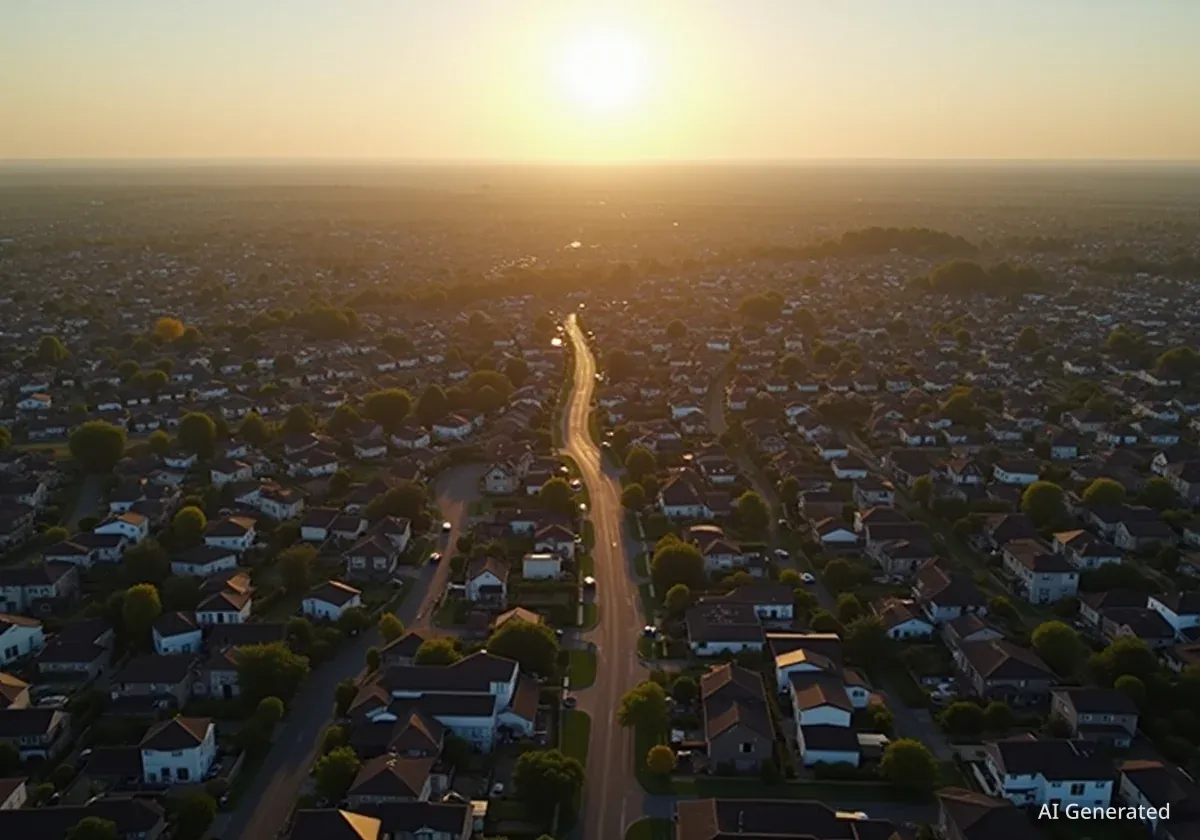A new report from Self Financial indicates that Baby Boomers, despite representing less than 20% of the U.S. population, own nearly 41% of all real estate in the country. This translates to a property value of almost $20 trillion. This significant ownership highlights the generation's dominant position in the American property market and overall wealth distribution.
Key Takeaways
- Baby Boomers, under 20% of the population, own 41% of U.S. real estate.
- This property is valued at nearly $20 trillion.
- Real estate makes up 22.7% of Boomers' total wealth.
- Gen X owns 12.2% less real estate than Boomers did at the same age.
- Millennials hold 20.4% of U.S. real estate, valued at nearly $10 trillion.
Generational Wealth in Property Ownership
The study, conducted by financial services company Self Financial, analyzed data and population statistics from the Federal Reserve. It focused on three generations: Millennials (born 1981–1996), Generation X (1965–1980), and Baby Boomers (1946–1964). Gen Z was not included in the analysis due to limited available data.
The findings show a clear disparity in real estate holdings across these groups. Baby Boomers, a generation now largely in their retirement years, continue to control a substantial portion of the nation's property assets. This ownership contributes significantly to their overall financial standing.
Fact: Boomers' Real Estate Value
Baby Boomers own almost $20 trillion worth of real estate in the United States. This represents 40.8% of the country's total real estate value, despite the generation making up less than 20% of the population.
Comparison with Younger Generations
Millennials, the largest living generation, own 20.4% of all U.S. real estate. This amounts to just under $10 trillion in property value. Generation X, positioned between Boomers and Millennials, holds 29.4% of the country’s real estate, valued at approximately $14 trillion.
The report also highlighted a generational gap when comparing property ownership at similar life stages. According to the study, Gen X owns 12.2% less real estate compared to Baby Boomers when they were at the same age. This suggests different economic conditions or investment behaviors between the generations.
"Baby boomers are 5.2 times wealthier than millennials, largely due to their substantial real estate holdings and other investments," the Self Financial study stated.
Real Estate's Role in Total Wealth
While Baby Boomers hold a vast amount of real estate, property accounts for 22.7% of their total wealth. This indicates a diversified portfolio that includes other significant assets, such as corporate equities and mutual funds.
In contrast, Millennials show a higher concentration of their wealth in real estate. For this younger generation, property represents 40.8% of their collective wealth. Their investments in corporate equities and mutual funds are considerably lower, standing at 15.5%.
Understanding Generational Wealth
Generational wealth refers to the total financial assets and property accumulated by a specific age group. Factors like economic conditions during prime earning years, investment opportunities, and inheritances can significantly influence these distributions. The data reflects the long-term impact of these factors on different generations.
Overall Wealth Distribution
Beyond real estate, Baby Boomers possess a dominant share of America's total wealth. They account for approximately 51.7% of the nation's overall assets. This figure surpasses that of other generations by a significant margin.
Generation X holds about 25% of the total U.S. wealth. Millennials, on the other hand, control close to 10% of the nation's wealth. These figures underline the financial power concentrated within the Baby Boomer generation.
- Baby Boomers: 51.7% of national wealth
- Generation X: 25% of national wealth
- Millennials: 10% of national wealth
The Great Wealth Transfer Ahead
Looking to the future, a separate report from wealth intelligence company Altrata suggests a shift. This report, released recently, anticipates that individuals with at least $30 million in assets will increasingly be from younger generations by 2040. This change is linked to the "great wealth transfer."
Experts estimate that around $84 trillion will pass from Baby Boomers to their heirs over the next two decades. This transfer of wealth is expected to reshape how assets are distributed across generations. Millennials and Gen Z are projected to be major beneficiaries of this transfer, potentially altering the current landscape of property and financial ownership.
This upcoming transfer could lead to a significant redistribution of real estate assets. Younger generations may gain greater access to property ownership and other forms of wealth. This shift could impact various sectors of the economy, from housing markets to investment portfolios.
Future Wealth Shift
An estimated $84 trillion is expected to transfer from Baby Boomers to their heirs over the next 20 years. This event, known as the "great wealth transfer," could significantly rebalance wealth distribution among generations.
Impact on Future Generations
The wealth transfer is not just about money changing hands. It represents a potential shift in economic power. Younger generations may have more capital for investments, entrepreneurship, and property acquisition. This could lead to new trends in consumer spending and economic development.
The current dominance of Baby Boomers in real estate is a snapshot of today's economic reality. However, the anticipated wealth transfer points to a dynamic future where younger generations will play a much larger role in shaping the nation's property landscape and overall economy.





